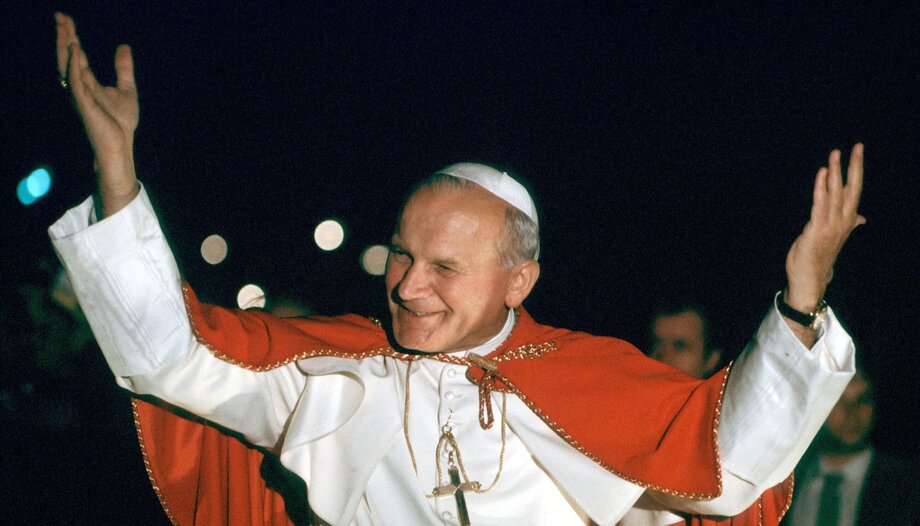– Supernatural Spanish Association of Personalisma non-profit civil association of a cultural nature", whose purpose is "to promote, disseminate, deepen and develop the personalist philosophy" has its own new title: "Personalist Philosophy".Online Master in Karol Wojtyla-John Paul II".
The Master's program will run from January to October 2024. registration period will end on January 10, 2024. The sessions, which will be held on Wednesday afternoons, will last three hours and will be recorded so that those enrolled can enjoy them at a later date.
The full registration fee is 1500 €, although there is the possibility of taking the master's degree in modules of two subjects. Members of the Spanish Association of Personalism will receive a 5 % discount on the registration fee.
"This master's degree offers a complete and interrelated overview of the many facets of Karol Wojtyla/John Paul II: his initial poetic and theatrical vocation, his philosophical and theological formation, his own anthropological proposal, which he called personalism, and his innovative theology of the body. The master's degree can be understood as a tribute to Karol Wojtyla-John Paul II that seeks to disseminate his immense personal, doctrinal and spiritual legacy," they indicate in the web. The title also "offers a complete vision of his life and work, unique in the Spanish language".
For further information, please contact the deputy director of the master's program, Nieves Gómez, at the following e-mail address: [email protected].
Subjects
The first block of subjects will take place from January to February with the following topics: "Karol Wojtyla / John Paul II (1920-2005)" ("The Polish context. Student of philology during Nazism. Priest and professor of Ethics. Archbishop of Krakow in an occupied Poland. The Second Vatican Council. Pope John Paul II and his influence on the 20th century"); and "The beauty of the word: poetic and theatrical work" ("From the Sonnets and the Renaissance Psalter to the poems of the mature period. The theatrical works of the neo-Romantic period: Job and Jeremiah. Dramas of the rhapsodic period. The goldsmith's workshop. Roman Triptych: synthesis and summit of his literary work").
The second block will be developed from March to April, with two other topics: "Ethics, love and responsibility" ("The renewal of ethics in the Lublin school under the influence of Scheler, Kant and Thomas Aquinas. Love and responsibility. The personalistic norm. Pleasure and sexuality. The person and love"); and, secondly, "Personalist anthropology" ("The personalism of Karol Wojtyla. The project of Person and action. Consciousness and self-consciousness. Freedom as choice and self-determination. Psyche, soma, integration and self-realization. The structure of affectivity").
The third block will take place in the months of May and June, and will focus on the following two themes: "Theology of the body" ("The mystery of the beginning: male and female created them. The human couple as image of the Trinity. The redemption of the heart. The body and the work of art. The resurrection of the flesh"); and "Marriage and family as 'communio personarum'" ("The feminine genius and the 'mulieris dignitatem'. Spousal love and fecundity. Marriage as an institution. The family as the place of the person. Paternity, maternity, filiation").
Finally, from September to October, the fourth and last block will be developed, with the themes "Socio-political thought" ("Participation and alienation. Work: objective and subjective dimension 'Laborem exercens'. The debate on liberation theology. Democracy, society, solidarity, market"); and, secondly, "Church and Christianity in John Paul II ("The Christological perspective: Christ reveals man to man, 'Redemptor hominis'. Science, reason and faith. The Church before its history. An Ecumenical Perspective. From the Second Vatican Council to the Third Millennium. Totus tuus").
Faculty
As for the faculty, the director of the master's program is Juan Manuel Burgos, president of the AEP and the AIP, and professor at the CEU San Pablo University and the Villanueva University of Madrid. He has edited the complete works of Karol Wojtyla in Spanish, and is the author, among others, of the books "Para comprender a Karol Wojtyla" (BAC) and "La filosofía personalista de Karol Wojtyla" (Palabra).
The deputy director of the master's degree is Nieves Gómez Álvarez, PhD in Philosophy from the UCM and professor at the Universidad Villanueva and UDIMA in Madrid, and at the Universidad Anáhuac in Mexico. She has been a collaborating professor at the Pontifical Institute John Paul II and in 2021 she taught in the John Paul II Chair of the CITES (Avila) the intensive course "The defense of the person. Wojtyla in the face of atheistic humanisms".
Also participating will be Juan José Pérez Soba, director of the International Area of Research in Moral Theology at the John Paul II Pontifical Theological Institute in Rome, and professor of Pastoral Theology of Marriage and the Family at the same institute, and Bogdan Piotrowski, author, translator and co-author of 14 books related to the work and teachings of Karol Wojtyla, and member of the Colombian Academy of Language. He personally knew John Paul II and the Holy See appointed him official translator of his works into Spanish for Latin America. He will teach the module "The beauty of the word: poetic and theatrical work".
Other professors will be Benjamin Wilkinson, Alejandro Burgos, Marco Lome, Patricia Garza Peraza or Andrzej Dobrzynski.





 Man, who are you? The intellectual legacy of St. John Paul II
Man, who are you? The intellectual legacy of St. John Paul II





